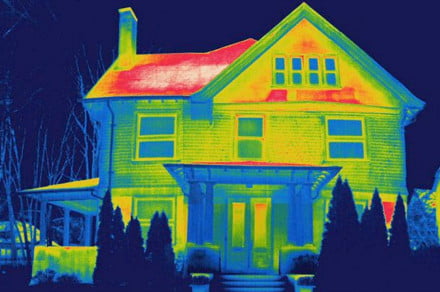To paraphrase 1984’s The Terminator, the artificial intelligence developed by residential real estate company HouseCanary will absolutely not stop, ever, until your house is properly valued.
The robot appraiser takes advantage of new federal regulations raising the threshold value of homes exempt from human evaluation. In doing so, it’s allowed to do a job that once required a flesh-and-blood human to perform. Namely, it will determine the current value of a property by inspecting its exterior condition and amenities.
Before you start picturing an inspection robot like the quadruped ANYmal, which carries out inspection tasks on oil rigs, this job is largely carried out remotely. The A.I. bases its decisions and predictions on images, using a neural network that’s trained to recognize the different qualities of a home that influence its valuation. When necessary, these images can be specially gathered using a drone.
“Software is eating real estate,” Jeremy Sicklick, CEO of HouseCanary, told the Wall Street Journal. “You’re seeing the beginnings of the machines outperforming humans in terms of accuracy.”
On its website, HouseCanary notes the following: “Our models are built by a team of data [scientists] and backed by advanced machine learning and a robust range of data sources. … HouseCanary [also] conducts monthly internal testing and quarterly third-party testing to make sure our products consistently meet the high standards our clients expect.”
As with A.I.-driven legal services like LegalZoom one big advantage of HouseCanary is its price. Unlike an appraisal for a typical family home, which costs between $375 and $900, the artificial intelligence-based alternative costs users just $59. It produces not only a predicted single price for the property valuation, but a detailed 20-page report explaining it. In doing so, it’s challenging traditional appraisal methods on both price competitiveness and speed.
In some ways, it’s no surprise to hear that a service such as this has been a success. Computer vision-based tools have been explored for tasks such as assessing potential repairs in vital infrastructure such as bridges. Image analysis of Google Maps can also be used to accurately predict crime levels in certain neighborhoods. When you’re able to accurately measure both of these, it’s certainly not impossible for an A.I. to be able to assess the cost of an average family house.

